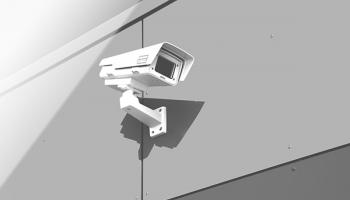This report by Freedom House discusses how the public health crisis is laying a dangerous foundation for the future surveillance state.
"Brick by brick, governments and companies responding to the public health crisis are laying a foundation for tomorrow’s surveillance state. Opaque smartphone apps collect biometric and geolocation data in an effort to automate contact tracing, enforce quarantines, and determine individuals’ health status. State agencies are gaining access to larger swaths of user data from service providers in a process that lacks oversight and safeguards against abuse. Police and private companies are accelerating the rollout of advanced technologies to monitor citizens in public, including facial recognition, thermal scanning, and predictive tools.
These systems have been deployed with little scrutiny or resistance. Most countries have yet to enact meaningful constraints on the collection and sharing of individuals’ biological information, known as biometric data, by state and corporate actors. Meanwhile, the past two decades of rapid technological change have already implanted surveillance into nearly every aspect of governance and commercial activity, creating an alarming amount of information that can be vacuumed up and manipulated by state and nonstate actors alike.
History has shown that new state powers acquired during an emergency tend to outlive the original threat. In their responses to the 9/11 terrorist attacks, governments around the world accelerated the militarization of law enforcement, gave state agencies broader mandates with less oversight, enhanced suspicion of and discrimination against marginalized populations, and normalized mass surveillance. The COVID-19 pandemic could serve as the catalyst for similar harms. Alarmingly, authorities in many countries have exploited the public health crisis to institute new and intrusive forms of surveillance, gaining novel powers of social control with few checks and balances."
Read more here.
